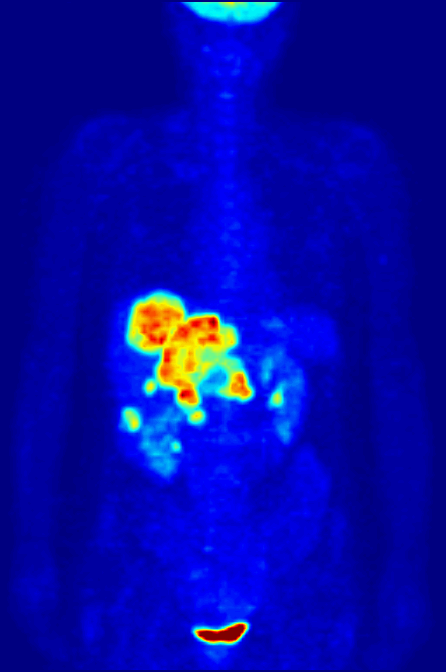Sacituzumab and Pembrolizumab Combination Shows Efficacy in Bladder Cancer

Interim results from the phase 2 SURE-02 trial (NCT05535218) presented at the American Society of Clinical Oncology (ASCO) Annual Meeting reveal that the combination of sacituzumab govitecan (Trodelvy) and pembrolizumab (Keytruda) demonstrates promising efficacy and a manageable safety profile for patients with muscle-invasive bladder cancer (MIBC). The study, led by Dr. Andrea Necchi, a medical oncologist at the Fondazione IRCCS Istituto Nazionale dei Tumori in Milan, Italy, aimed to address patient concerns regarding the necessity of radical cystectomy following treatment.
The trial involved 49 participants, with a median age of 64 years, who received four cycles of 200 mg pembrolizumab on day 1 and 7.5 mg/kg of sacituzumab govitecan on days 1 and 8 every three weeks. A notable finding was the clinical complete response (cCR) rate of 44.4% (95% CI, 27.9% to 61.9%) within the intent-to-treat population of 36 patients. The combination therapy allowed for bladder preservation in patients achieving cCR, which is crucial given the traditionally invasive nature of bladder cancer treatments.
Dr. Necchi emphasized the trial's design, stating, "SURE-02 was designed to maintain the momentum of bladder preservation based on treatment response. Our findings are significant in that they not only support the use of this combination therapy but also highlight the importance of personalized treatment pathways for bladder cancer patients."
The study reported a total downstaging rate, including those who underwent radical cystectomy, of 55.6%. Furthermore, the 12-month event-free survival (EFS) rate was 71.3% (95% CI, 55.7% to 91.2%), and metastasis-free survival stood at 84.2% (95% CI, 72% to 96.5%). In patients who achieved cCR, the 12-month bladder intact EFS reached 100%, while it stood at 74% (95% CI, 54.8% to 99%) for those undergoing repeat transurethral resection of bladder tumor (TURBT).
Safety assessments revealed that 97.9% of patients experienced treatment-related adverse events (TRAE), with 46.9% encountering immune-related adverse events (irAE). Serious TRAEs were noted in 8.2% of patients, with 18.4% reporting grade 3-4 TRAEs and 4.1% experiencing grade 3-4 irAEs. Notably, treatment discontinuation due to TRAEs occurred in 6.1% of patients before completing four cycles, indicating a need for careful monitoring throughout treatment.
The findings also highlighted important genetic biomarkers associated with treatment response. According to the data, 40% of patients with cCR exhibited ERBB2 alterations, while non-cCR patients showed enrichment in losses of MTAP, CDKN2A, and CDKN2B. Dr. Necchi noted, "These correlations suggest that understanding genomic profiles can aid in predicting treatment outcomes, thereby facilitating tailored therapies for patients."
In conclusion, the SURE-02 trial's interim results provide a compelling case for the continued investigation of sacituzumab govitecan and pembrolizumab as a treatment option for MIBC. The combination not only offers a chance for bladder preservation but also underlines the importance of personalized medicine in oncology. Dr. Necchi remarked, "Our study reinforces the potential for this combination to transform treatment approaches for muscle-invasive bladder cancer, ultimately improving patient outcomes."
**References:** Necchi A, Jong JD, Proudfoot J, et al. First results of SURE-02: A phase 2 study of neoadjuvant sacituzumab govitecan (SG) plus pembrolizumab (Pembro), followed by response-adapted bladder sparing and adjuvant pembrolizumab, in patients with muscle-invasive bladder cancer (MIBC). J Clin Oncol. 2025;43(suppl 16):abstract 4518. doi:10.1200/JCO.2025.43.16_suppl.4518.
Advertisement
Tags
Advertisement





